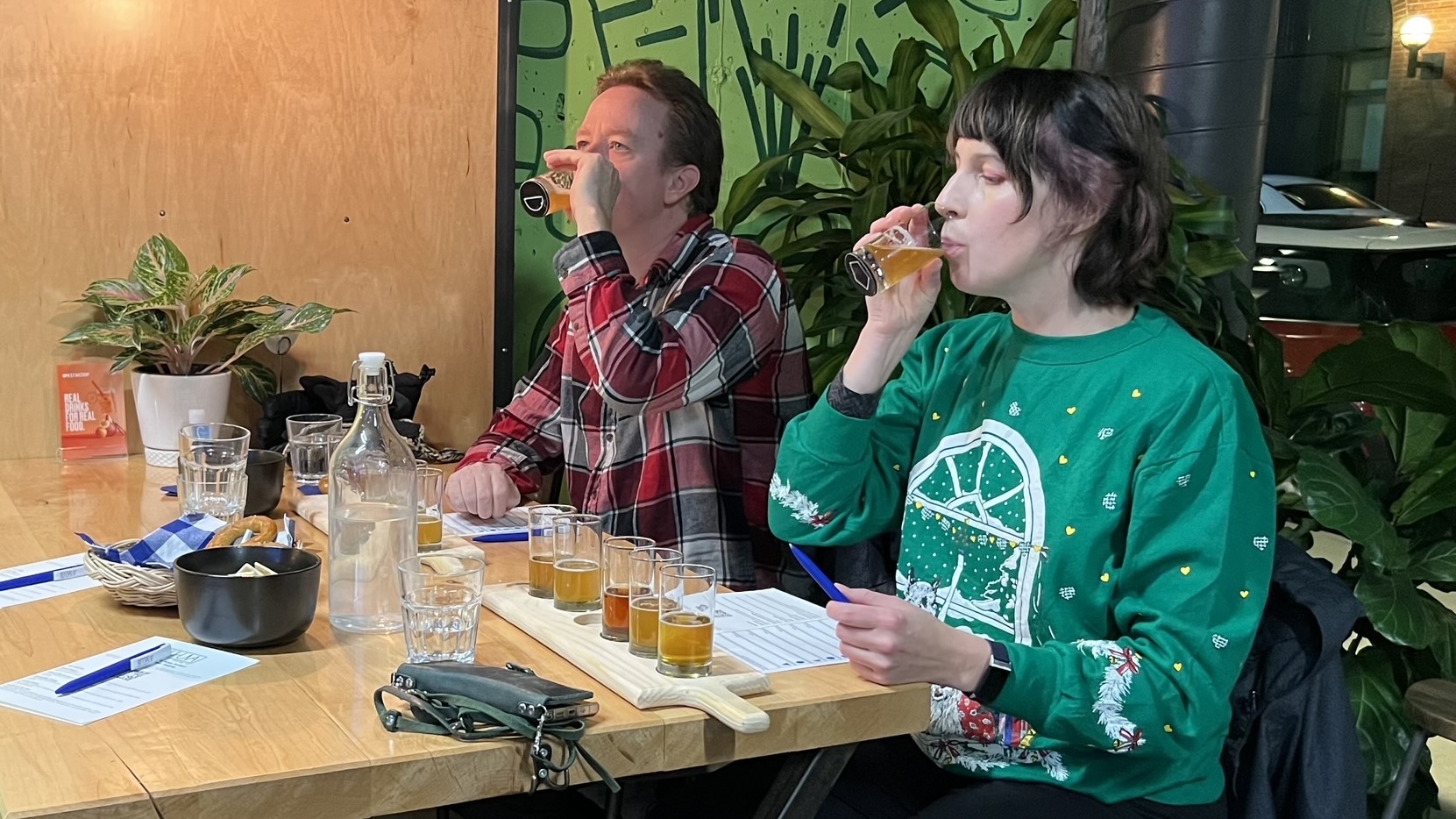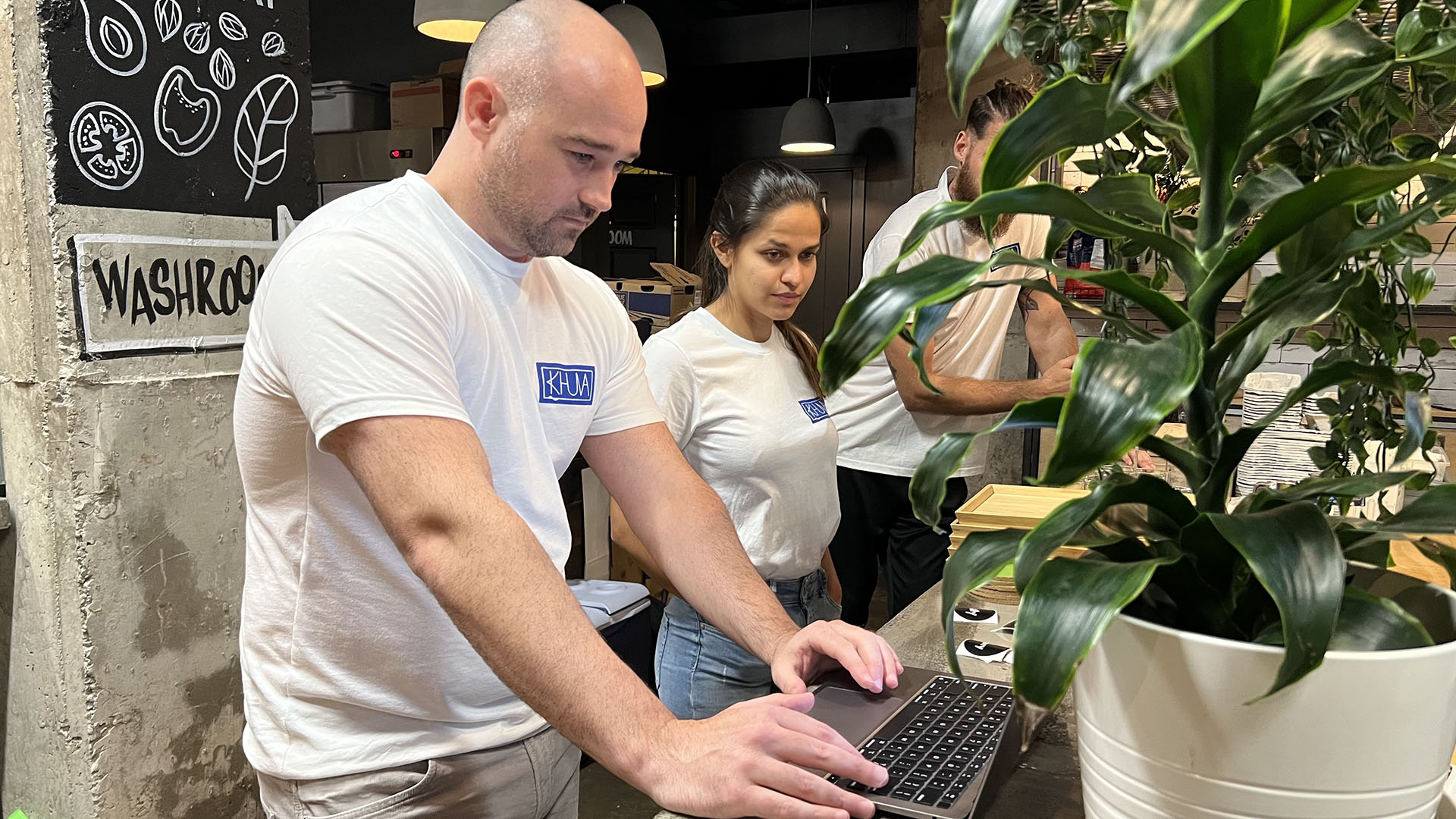How one company uses A.I. to match Nova Scotians to their perfect brew
Algorithm-powered taste tests predict craft beer preferences

caption
Billay Read and Meg Batchelor sample beer at the Khuva tasting on Saturday.An algorithm designed for space probes and planets may ultimately help Nova Scotians discover their favourite local beer.
Jeff Inglis and Ishany Balder, co-founders of Khuva Craft Beer Lab, have been holding blind beer tastings in Halifax with help from their A.I. algorithm.
Khuva was founded in February. Now, Inglis works with the company full time and Balder, who has another job, works part-time.
Inglis has a PhD in dynamical neuroscience from the University of California at Santa Barbara. He said when he was a student, the department of computer science and physics asked him to create a model that could help a space probe decide what images of planets people would like the best.
Inglis, a fan of craft beer, noticed the model was similar to ones that multinational breweries were using to create “inoffensive” beers. He decided to adapt the algorithm and create a new model that recognizes that everyone has a different palate.
“There are unique craft breweries creating unique and delicious beers. And people have very unique palates, so let’s find a way to mash them together rather than creating something that kind of appeals to everyone,” he said.

caption
Co-founders Jeff Inglis and Ishany Balder input data into Khuva’s algorithm.Khuva launched its first tasting in the fall, called A.I. Powered Nova Scotian Craft Beer Tastings. Participants are shown how to sample a beer, then taste six unidentified craft beers and rank them from most liked to least liked. They enter their rankings through a QR code on their phones. The algorithm takes the information and creates a personalized beer profile for participants. Additionally, it gives two more recommendations for each participant. It predicts which one the participant will like more.
At Saturday’s taste testing, the algorithm predicted only one out of six correctly.
Billay Read said he enjoyed the beer the algorithm predicted but it was an odd choice given his rankings during the blind test.
“The two double IPA were in my bottom three, but then it paired me with a double IPA, which is interesting,” said Read, one of six participants of the tasting at Harvest Clean Eats in downtown Halifax.
Inglis said they don’t expect to get everyone right every night, especially with a smaller sample size. Khuva usually runs tastings with eight participants at a time. Overall, the algorithm is correct in its prediction roughly 75 per cent of the time, Inglis said.
“When we make a prediction about what they’re gonna like and they say, ‘We don’t like that,’ we say, ‘OK, what can we do now? What’s the next thing we’re gonna do?’ ” said Inglis.
He said the more data they collect on people’s preferences, the more accurate the model will get.
Currently, the model knows 17 beers from 14 craft breweries in Nova Scotia. Khuva adds a new beer every week.
Inglis and Balder won’t reveal how their algorithm is different from a big corporation’s but say it’s simple and unique. They plan to partner with restaurants, breweries and taprooms and collect more data through an app they’re developing.
Balder would like to expand beyond Nova Scotia and hold Khuva tastings throughout Canada.
They don’t want to limit themselves to beer either.
“The idea is that you can honestly apply [the model] to almost any food or beverage,” said Balder. “We’ll probably start with things like hot sauces and chocolate and see where it goes.”
About the author

Jack Ronahan
Jack is a fourth year journalism student at the University of King's College.
